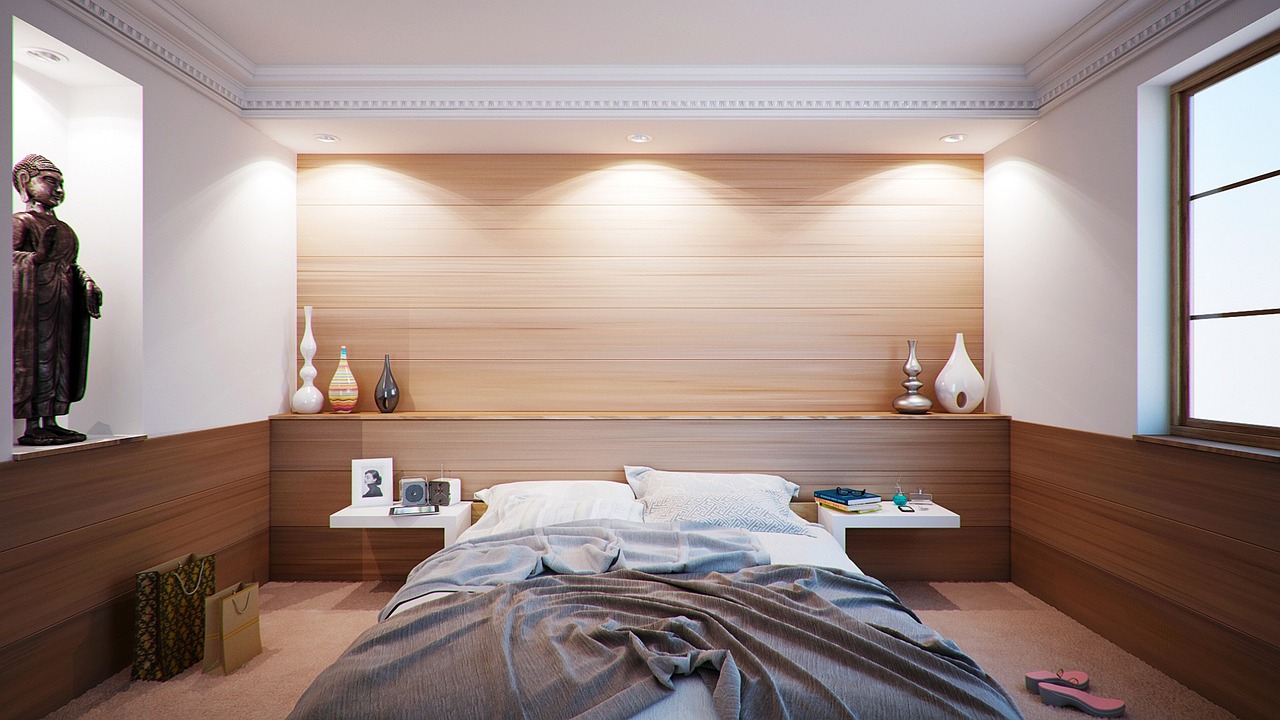Bedrooms are where you spend most of your time in your home, and if you are looking to possibly make an extra income through renting a room or using Airbnb, then every guest will expect a good night’s sleep.
Occasional or repetitive sleepless nights can affect your life, either the physical, mental or emotional aspect. In the long run, being deprived of enough sleep can affect how you perform in school or at the office, your relationship with other people, and your personality or health.
Insomnia or sleep deprivation has three stages
* Initial insomnia is when you find difficulty in sleeping and it takes you more than 30 minutes to sleep.
* Middle insomnia is when you have a problem in maintaining a sleep state and you’ll often lie awake from night to the next morning
* Late insomnia is waking up early after less than 6 hours of sleep.
Insomnia can be a symptom of another medical condition or due to the pattern of your sleep. The first step to fighting insomnia is to establish a consistent bedtime routine that will enable natural sleep. The next step is to create a comfortable and sleep-inducing atmosphere. This article offers 10 room improvement guides to achieve healthier sleep.

10 Top Tips
1. Room Temperature. Set the temperature according to your preference, you don’t want to wake up in the middle of the night because its too hot or too cold. Ideally, it’s better to have a cooler room temperature, but you need to determine your comfort level.
2. Check the windows. A slightly opened window can facilitate sleep by allowing proper room ventilation and additional air. This can help with proper breathing.
3. Eliminate Noise. You may be sensitive to noise in and out of the bedroom that can distract your sleep; using earplugs can help in this situation.
4. Light matters. Light can disrupt your sleep and can signal your body that it’s morning and time to wake up. You should use dim lights or if possible make your bedroom as dark as possible. You can also try using eye mask to block interfering light.
5. Block the light. You can also use thick curtains or blinds to cover any extra light source in your room.
6. Remove the clock. The sound of a ticking clock can be disturbing, and you may often find yourself counting hours. Knowing that time is passing will make you feel stressed, and this won’t help you get a healthy sleep. You can use a digital clock as an alternative, but make sure to remove it from your direct eyesight.
7. Remove distracting gadgets. Stimulants like television, computers, and radio can distract your concentration from sleeping. Make sure that you only use your bedroom for sleeping.
8. Find a comfortable mattress. Invest in a good, firm mattress that provides sufficient spinal support. It should be comfortable and big enough for you.
9. Pillow choice. Choose a pillow that suits your preference. It can be soft or firm if it provides proper head support.
10. Bedding & blankets. Provide crisp and clean bedding and a comfortable blanket.
Your bedroom should be arranged to give you comfort and peace. Find the right pieces to make you feel calm and ready for a natural sleep routine.
Occasional or repetitive sleepless nights can affect your life physically, mentally, and emotionally. In the long run, being deprived of enough sleep can affect your life, so you have to find a short or long-term solution. The article provides 10 room renovation guides for healthier sleep.
3 Take Aways
- If you are planning major renovations or improvements to your house, being aware of eco-friendly options can save you money, improve your home, and help the environment.
- If you are looking to make an income through Airbnb, use a local Brighton agent.
- If you need more advice, click here.
